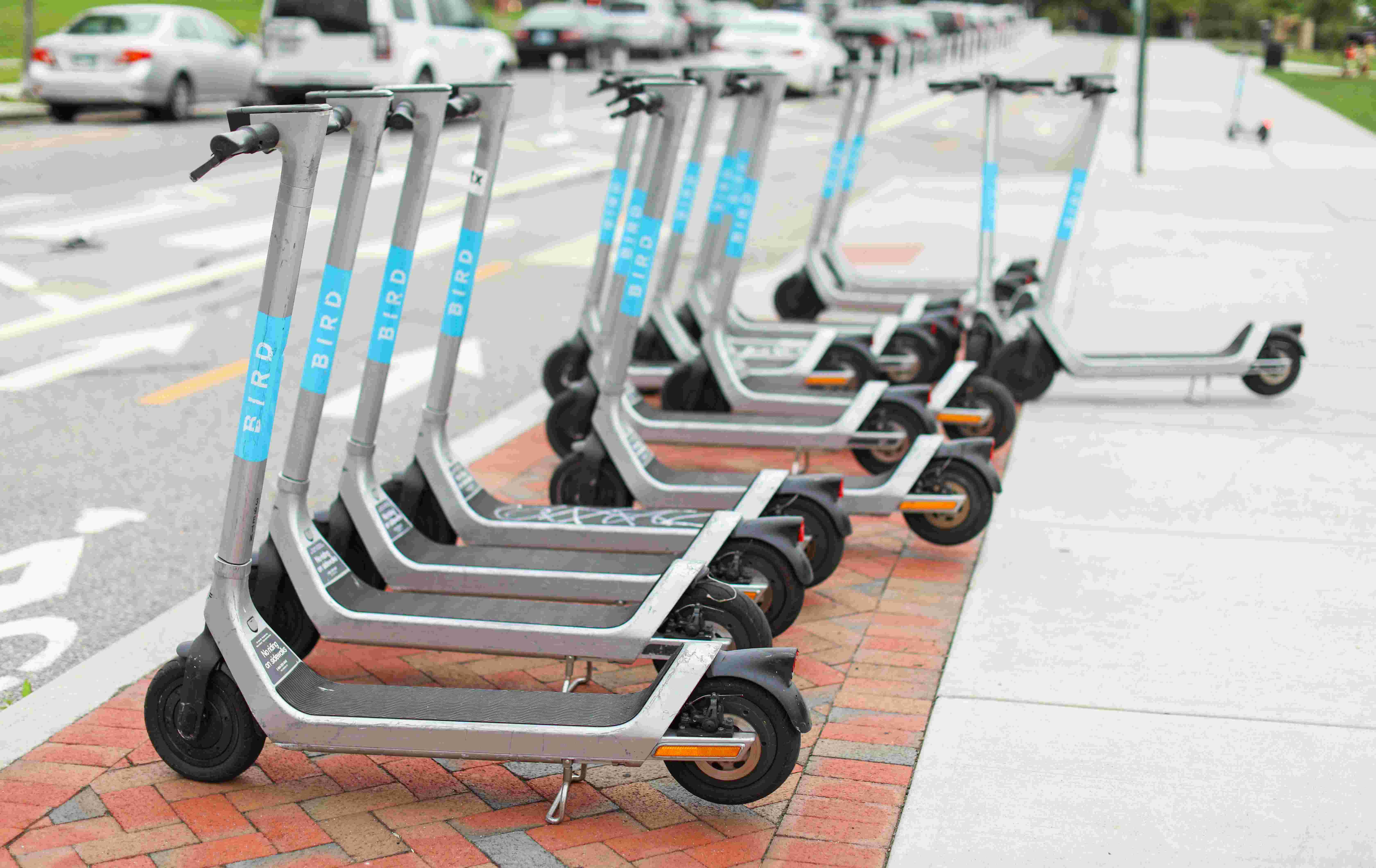11/20/2023
Bird scooters depart San Diego amid challenges
The Last Stand of E-Scooters in a Tightened Regulatory Landscape
San Diego's e-scooter landscape altered
The buzzing streets of San Diego have recently quieted down with the departure of Bird, the last e-scooter operator in the city. This development leaves the city without any scooter operators, a stark contrast to the scene just over a year ago, when these vehicles were a common sight on the city's streets.
The exit of Bird follows a pattern of withdrawals by other major e-scooter ride-sharing companies, including Lime, Spin, and Link, all of which had contracts allowing them to deploy scooters in San Diego but ultimately chose to leave.
Stricter regulations and their impact
San Diego's stringent regulations have been a major factor in Bird's decision to exit the city, highlighting the challenges faced by e-scooter operators. These regulations include a 3 mph speed limit on sidewalks, a ban on large or disorderly clusters of scooters (reasonable), imposition of fees on operators, and limits on the number of companies and scooters allowed in the city at any given time.
Additionally, the city employed geofencing to prevent scooters from operating in certain areas, like the boardwalks in Pacific Beach, and capped the total number of scooters citywide at 8,000. These rules, aimed at enhancing pedestrian safety and reducing sidewalk congestion, have been described as some of the most stringent globally and have also led to a significant decrease in scooter usage and customer satisfaction in the area.
City's response: proposing softer regulations
In an attempt to reverse the exodus of e-scooter companies, San Diego officials have proposed softer regulations, aiming to lure operators back. These changes come as part of the city's broader initiative to promote micromobility and address climate change and urban congestion.
The proposed changes, discussed by the City Council's Active Transportation and Infrastructure Committee, include
- Expanding scooter deployment areas.
- Modifying the fee structure to charge scooter companies only when a scooter is used, in addition to the annual $20,000 operating fee.
- Modifying the controversial sidewalk speed rule: The current requirement for scooters to have technology that detects when they are on sidewalks and automatically slows them down to 3 mph is proposed to be replaced with audio alerts to inform riders about speed limits in certain areas, particularly on sidewalks.
- Shifting away from the “coral” staging method for scooter parking, which was implemented to reduce sidewalk clutter, providing companies with more parking options.
- Change in ID verification process: The proposal recommends requiring riders to upload an image of their personal ID only prior to their first ride, instead of every three months.
- Creating a citywide speed limit of 10 mph during the hours of 12:30–5:30 a.m.
These amendments are currently pending further discussion and approval by the full City Council. The Council is expected to review and make a decision on these proposed changes to the local scooter guidelines in the upcoming weeks, potentially paving the way for a renewed e-scooter presence in San Diego.
The struggle beyond city rules
However, the challenges for e-scooter companies like Bird extend beyond local regulations. The increasing ownership of personal scooters and the competition posed by ride-hailing services like Uber have led to a decrease in demand for rental scooters. In addition, these companies are contending with the high incidence of scooter theft. This issue is particularly severe in San Diego, which is close to the U.S.-Mexico border (Tijuana area). Also, the requirement by local regulations to use advanced scooter models, which are more appealing to thieves, just exacerbates this problem.

Public safety at the forefront of debate
Public opinion remains divided, with some residents finding e-scooters a convenient transportation option, while others raise alarms over safety and the nuisance caused by improperly parked scooters.
Groups like Safe Walkways have voiced strong opposition to relaxing regulations, emphasizing the need to prioritize pedestrian safety over the re-introduction of e-scooters arguing that allowing scooters on sidewalks with only an audio alert system might not be sufficient.
Bird's position: A hiatus, not a goodbye
Bird has termed its departure from San Diego a "hiatus," and has left the door open for a possible return. The company has been in discussions with city officials to address the issues leading to their suspension of service.
Their app currently displays a message titled "WINTER SNOOZE," specifically addressing their San Diego audience with a tone of optimism, hinting at a potential future return. This message conveys appreciation to their customers for supporting Bird's vision of reducing car usage and promoting cleaner air. It also implies a commitment to reintroducing alternative transportation options in San Diego, suggesting a collaborative effort with the city to make a comeback in the following year.
Despite Bird's departure, a limited number of e-scooter devices continue to operate in San Diego, particularly servicing areas around the San Diego State University and UC San Diego campuses. These operations are under separate contracts and are not directly affected by the city's agreements with the four major scooter companies, including Bird. This limited presence indicates that e-scooters remain a part of San Diego's transportation landscape, albeit on a smaller scale.
San Diego's commitment to climate goals and micromobility
Despite the current absence of e-scooters, the city of San Diego remains committed to micromobility as part of its broader climate action goals. The city's Sustainability and Mobility Department continues to emphasize the importance of diverse transportation options, including shared electric scooters and bikes, to reduce congestion and promote sustainability.
In summary, the departure of Bird scooters from San Diego's streets is more than just the end of a transportation option. It reflects the ongoing struggle to balance urban mobility needs with safety, regulatory challenges, and environmental objectives. As the city re-evaluates its approach, there remains a cautious optimism for the return of e-scooters under a new, more balanced regulatory framework.


